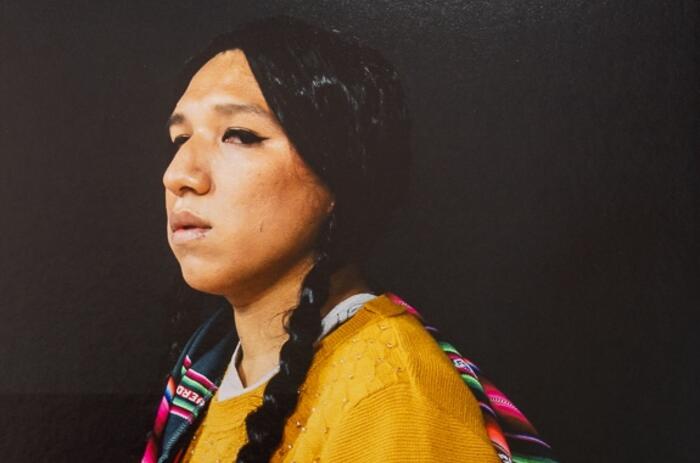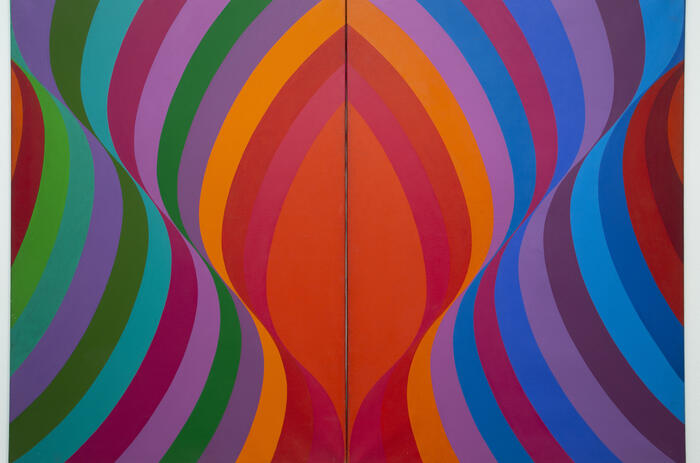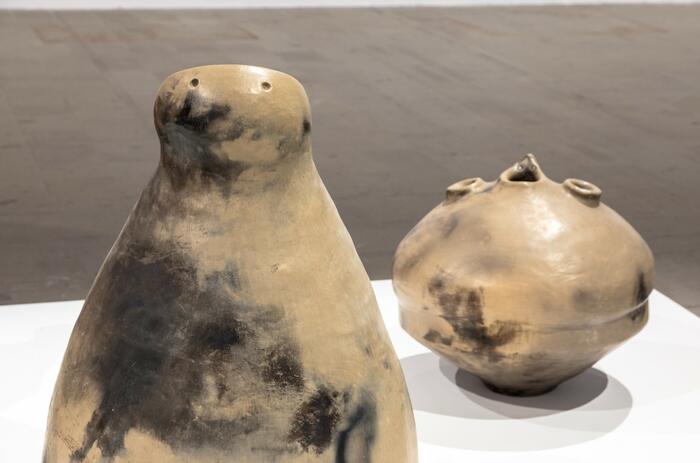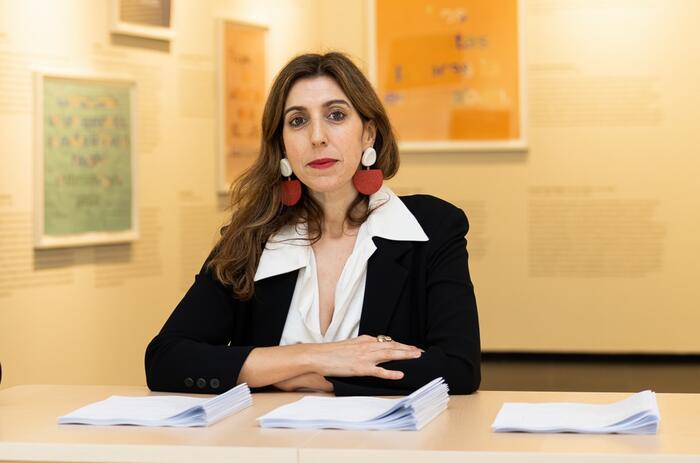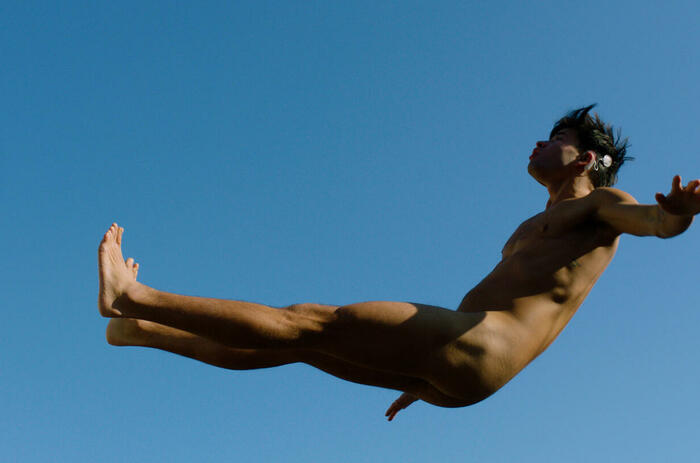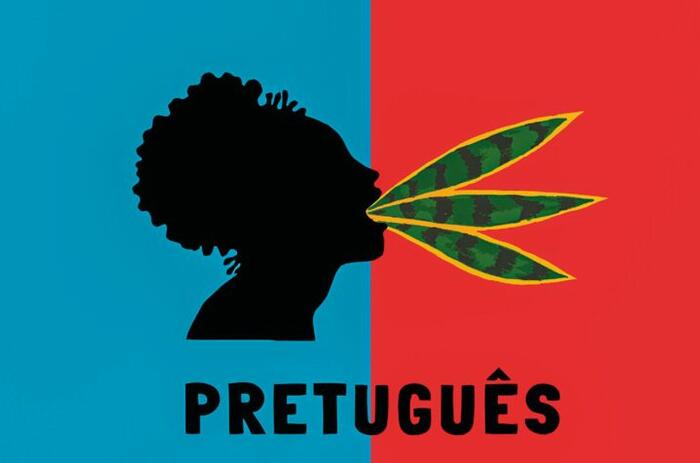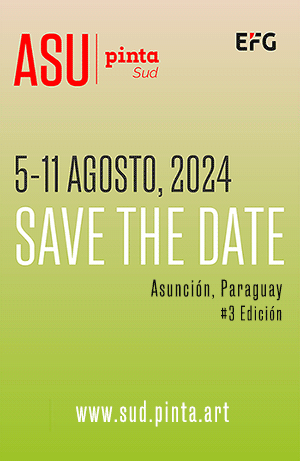LA CHOLA POBLETE EXHIBITS VIRGINS, COLONIALISM AND EROTICA IN GUAYMALLÉN
La Chola Poblete, Argentine artist and LGBTQ+ rights activist, draws confrontation between historical stereotypes and contemporary visual languages. Her colourful works in diverse media disrupt prevailing power structures and celebrate the rich culture of South American Indigenous peoples. Titled after her hometown, Guaymallén is La Chola’s solo exhibition at PalaisPopulaire, curated by Britta Färber, head of Deutsche Bank’s international art and culture program.
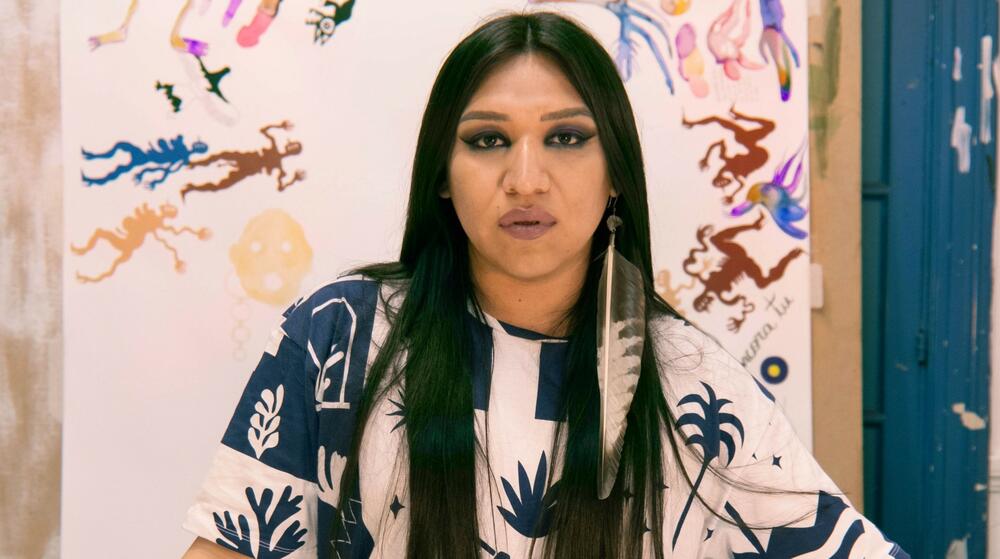
La Chola Poblete: Guaymallén is housed at the PalaisPopulaire, located in Berlin’s Museumsinsel (Museums Island). This district, modelled in neoclassical style, is reminiscent of 19th century Imperialism and 20th century nationalism, thus bearing witness to the political transformations of Germany. Following the German unification under Prussian rule in 1871, the idea of Germany as a Kulturnation (Culture-nation) was conceived as a strategy for power centralisation. To this day, the monumental architecture style of the buildings and the imposing -even oppressive- scale of urban planning create a feeling of personal insignificance against the weight of nation-state policies. Vast and intimidating, this environment elicits authority and jurisdiction.
These feelings are immediately contested as one enters the contemporary space design of the PalaisPopulaire and the vibrant curatorship of Guaymallén. Neon lights, animated colours and strong voices of individuality create an oasis where conflict isn’t tense but liberating.
-
La Chola Poblete: Guaymallén. Deutsche Bank “Artist of the Year” 2023. Installation views at PalaisPopulaire
-
La Chola Poblete: Guaymallén. Deutsche Bank “Artist of the Year” 2023. Installation views at PalaisPopulaire
-
La Chola Poblete, 2023. Photo: Tomas Wurschmidt. © La Chola Poblete. Courtesy of PalaisPopulaire.
-
The Striped Column. © La Chola Poblete. Courtesy of PalaisPopulaire.
Named as the Deutsche Bank’s “Artist of the Year” 2023, La Chola Poblete creates an exhibition that is not merely a display but a profound narrative exploration delving into gender and sexuality, indigenous Argentine identities and Pop iconography. Here, the historic and the contemporary intersect. As the main connecting thread, the Virgin Mary serves as a focal motif that binds these elements in a powerful synthesis. Her image as the maternal icon from Christian lore becomes a symbol of broader, more inclusive femininities and spiritualities that resist and reinterpret colonial and patriarchal narratives. The exhibition invites viewers to reconsider the Virgin Mary, traditionally a figure of purity and obedience, as a beacon of resistance and empowerment.
La Chola’s watercolours are sprawling compositions where the sacred and profane dance in chaotic harmony. The tone of these paintings is humorous, visceral and subversive. Hybrid beings – part male, part female, mingle with symbols drawn from global pop culture and deeply rooted Indigenous traditions, creating a visual dialogue that challenges the viewer’s perceptions of identity, spirituality and belonging. The repeated invocation of the Virgin Mary serves as a female touchstone and a narrative device to explore themes of martyrdom, divine intervention, and, crucially, empowerment.
-
La Chola Poblete: Guaymallén. Deutsche Bank “Artist of the Year” 2023. Installation views at PalaisPopulaire
-
Virgen del Carmen de Cuyo, 2023. La Chola Poblete. Watercolor, acrylic, and ink colors on paper, 200 x 152 cm. © La Chola Poblete. Courtesy of PalaisPopulaire
-
Detail. © La Chola Poblete. Photo: Mercedes Abella.
-
Barroco Andino, 2023. La Chola Poblete. Watercolor on paper. 200 x 152 cm. © La Chola Poblete. Courtesy of PalaisPopulaire
-
Detail. © La Chola Poblete. Photo: Mercedes Abella.
-
Detail. © La Chola Poblete. Photo: Mercedes Abella.
As a final stage of the exhibition, two life-size sculptures of the Virgin are erected within isolating yet devotional rooms. “Venus Papas Lays” has a torso made of bread and “legs” of naked wood. Around her, a pool of industrialized potato chips satirizes the eight thousand years of history around Andean culture towards potatoes, today a staple of Western meals. Next door, the “Venus, marrona rajada” lays in a red room, with an open abdomen and protruding bread organs. Inverting the symbolism of bread as Christ’s body, this Virgin’s womb is commodified and scrutinised.
-
Maria & papas lays, 2023. La Chola Poblete. © La Chola Poblete. Photo: Mathias Schormann. Courtesy of PalaisPopulaire
-
Detail. Maria & papas lays, 2023. La Chola Poblete. Photo: Mercedes Abella
-
Venus, marrona rajada, 2023. La Chola Poblete. Iron structure, galvanized mesh, bread, and wig. 162x 30 cm. Photo courtesy of PalaisPopulaire.
-
Detail. Venus, marrona rajada, 2023. La Chola Poblete. Photo: Mercedes Abella
-
La Chola Poblete, 2022. Photo: Agustina Lamborizio. © La Chola Poblete.
What is particularly compelling about La Chola’s work is its capacity to blend acerbic humour with brutal honesty in an aesthetic that exudes beauty and sensibility. This combination disrupts the complacency with which society perpetuates the narratives of white patriarchal dominance. Through the Virgin Mary, La Chola both venerates and subverts, acknowledging her role in Christian and Indigenous spirituality while reclaiming her image as an emblem of broader, inclusive feminist and queer identities. The exhibition, of La Chola as an artist but mainly as an activist, is a reflection of her own journey and an invitation to rethink the symbols that shape our understandings of divinity, gender and power.

